
Farouk I was the tenth ruler of Egypt from the Muhammad Ali dynasty and the penultimate King of Egypt and the Sudan, succeeding his father, Fuad I, in 1936 and reigning until his overthrow in a military coup in 1952.

Egypt was a major battlefield in the North African campaign during the Second World War, being the location of the First and Second Battles of El Alamein. Legally an independent kingdom since 1922, and an equal sovereign power in the condominium of Anglo-Egyptian Sudan, in reality Egypt was heavily under the coercive influence of the United Kingdom, a state of affairs that had persisted since the United Kingdom intervened militarily in the Orabi Revolt in favour of Egypt's Khedive, Tawfik Pasha, in 1882, subsequently occupying the country.

Miles Wedderburn Lampson, 1st Baron Killearn, was a British diplomat.

Fuad II, or alternatively Ahmed Fuad II, is a member of the Egyptian Muhammad Ali dynasty. As an infant, he formally reigned as the last King of Egypt and the Sudan from July 1952 to June 1953, when he was deposed.
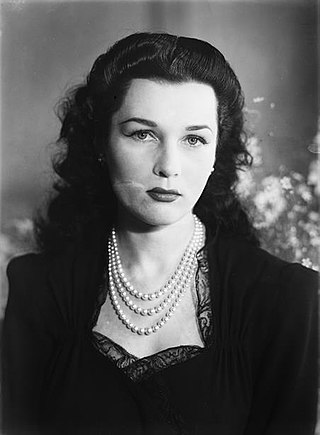
Fawzia of Egypt, also known as Fawzia Pahlavi or Fawzia Chirine, was an Egyptian princess who became Queen of Iran as the first wife of Mohammad Reza Pahlavi, Shah of Iran. Fawzia was the daughter of Fuad I, seventh son of Ismail the Magnificent. Her marriage to the Iranian Crown Prince in 1939 was a political deal: it consolidated Egyptian power and influence in the Middle East, while bringing respectability to the new Iranian regime by association with the much more prestigious Egyptian royal house. Fawzia obtained an Egyptian divorce in 1948, under which their one daughter Princess Shahnaz would be brought up in Iran. Fawzia, who was known as the "sad queen" in the press, lived in isolation and silence after the 1952 Egyptian revolution and never published her memories of the court of Iran and Egypt.

Major General Mohamed Bey Naguib Youssef Qutb El-Qashlan, known simply as Mohamed Naguib, was an Egyptian military officer and revolutionary who, along with Gamal Abdel Nasser, was one of the two principal leaders of the Free Officers movement of 1952 that toppled the monarchy of Egypt and the Sudan, leading to the establishment of the Republic of Egypt.
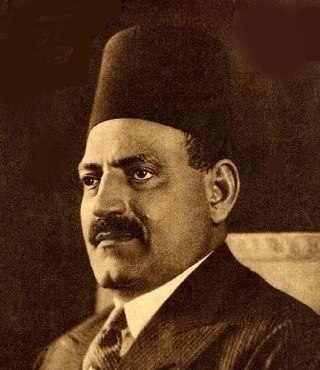
Mostafa el-Nahas Pasha or Mostafa Nahas was an Egyptian politician who served as the Prime Minister for five terms.

The Wafd Party was a nationalist liberal political party in Egypt. It was said to be Egypt's most popular and influential political party for a period from the end of World War I through the 1930s. During this time, it was instrumental in the development of the 1923 constitution, and supported moving Egypt from dynastic rule to a constitutional monarchy, where power would be wielded by a nationally-elected parliament. The party was dissolved in 1952, after the 1952 Egyptian Revolution.
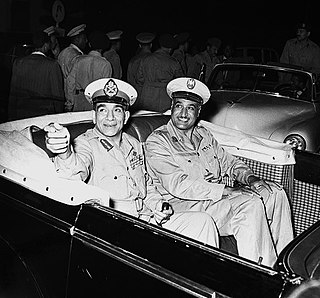
The Egyptian revolution of 1952, also known as the 1952 coup d'état and 23 July Revolution, was a period of profound political, economic, and societal change in Egypt. On 23 July 1952 the revolution began with the toppling of King Farouk in a coup d'état by the Free Officers Movement. This group of army officers was led by Mohamed Naguib and Gamal Abdel Nasser. The Revolution ushered in a wave of revolutionary politics in the Arab World, and contributed to the escalation of decolonisation, and the development of Third World solidarity during the Cold War.
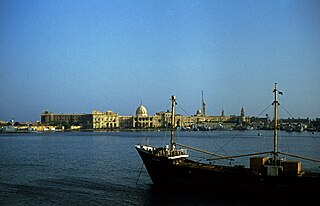
Ras El Tin Palace is a palace on the coast of the Mediterranean Sea in Alexandria, Egypt. It is one of the official residences for a serving President of Egypt. Under the Muhammad Ali Dynasty of Egypt and Sudan, it was a royal palace. Ras El Tin Palace is the oldest royal Egyptian palace still in use.

The Kingdom of Egypt was the legal form of the Egyptian state during the latter period of the Muhammad Ali dynasty's reign, from the United Kingdom's recognition of Egyptian independence in 1922 until the abolition of the monarchy of Egypt and Sudan in 1953 following the Egyptian Revolution of 1952. Until the Anglo-Egyptian treaty of 1936, the Kingdom was only nominally independent, as the United Kingdom retained control of foreign relations, communications, the military, and Sudan. Officially, Sudan was governed as a condominium of the two states; however, in reality, true power in Sudan lay with the United Kingdom. Between 1936 and 1952, the United Kingdom continued to maintain its military presence, and its political advisers, at a reduced level, which resulted in the increase of Egyptian sovereignty and independence.
Princess Fawzia was the second daughter of King Farouk I of Egypt from his first wife Queen Farida.

The Cairo fire, also known as Black Saturday, was a series of riots that took place on 26 January 1952, marked by the burning and looting of some 750 buildings—retail shops, cafes, cinemas, hotels, restaurants, theatres, nightclubs, and the city's Casino Opera —in downtown Cairo. The direct trigger of the riots was the Battle of Ismailia, an attack on an Egyptian police installation in Ismaïlia by British forces on 25 January, in which roughly 50 auxiliary policemen were killed.

Abdul Rahman Hassan Azzam, also known as Azzam Pasha, was an Egyptian diplomat and politician. He was the first Secretary-General of the Arab League, from 22 March 1945 to September 1952.

The Young Egypt Party also known as the Green Shirts was a fascist Egyptian nationalist political party. It is notable for counting a young Anwar Sadat as a member.
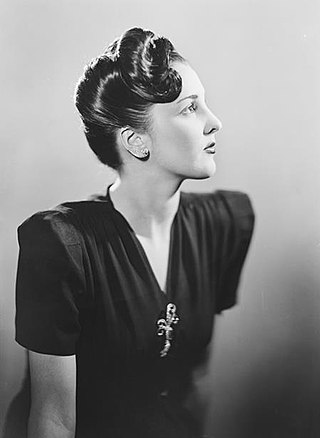
Princess Faiza was an Egyptian princess and a member of the Muhammad Ali dynasty.
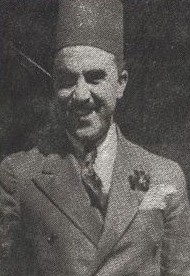
Amin Osman, also known as Amin Osman Pasha, was an Egyptian judge and politician who served as finance minister in the period 1943–1944. He was assassinated by Hussein Tawfik, who was connected with the Egyptian army officers, on 5 January 1946.

The first cabinet formed by Hussein Sirri Pasha was one of the governments during the reign of King Farouk. The cabinet lasted from November 1940 to February 1942. It succeeded the cabinet of Hassan Sabry Pasha who suddenly died on 15 November while delivering a speech on behalf of the King at the opening session of the Chamber of Deputies.
First cabinet of Maher Pasha was one of the governments of the Kingdom of Egypt. It was the last cabinet in the reign of King Fuad and the first one in the reign of King Farouk. It was headed by Aly Maher Pasha and existed between 31 January and May 1936. It replaced the government headed by Mohamed Tawfik Naseem Pasha who resigned on 22 January 1936. The cabinet was formed following the agreement of the political parties and was a caretaker government.

















